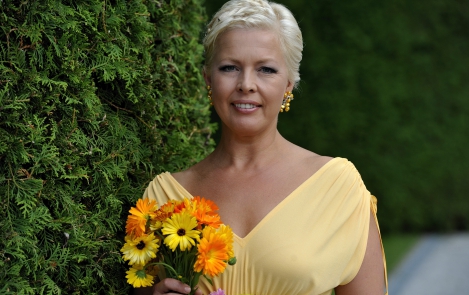-
Reset
+


Article in the October issue of Eesti Naine magazine
11.10.2011
“Is it true you’re moving to Finland for work, too?” I ask my friend, a GP, understanding completely and not at all at the same time. “I don’t know yet for sure,” she says, with a frown. The conversation that ensues is one that touches on something that affects us all – what makes life worth living. What makes it the kind of life in which you’re a good person and want to do good by sharing that with others.
“It’s not about the money,” says my friend, which it seems has been the case for a lot of people who’ve left. The biggest difference between us and our neighbours is said to be the prevailing attitude: in Finland, a family doctor is regarded as a specialist like any other in the medical profession. They’re respected and the work they do is held in esteem, by their patients and by their colleagues. That’s reflected in what they do and how much they have to do. Many who go to work there as GPs do a double-take when they get to go home at four in the afternoon and realise they actually have time to themselves. In Estonia you’ll often find them still sitting in their office till late at night, slugging away at the keyboard entering data into the system for doctor’s certificates. It’s as though our GPs are the lowest of the low in the medical class system, toiling in the field without broad knowledge of any particular area. Wasting money that could be better spent elsewhere whilst rewarding themselves exorbitantly. If you can’t get in to see them straight away and they can’t sort you out straight away, obviously it’s their fault. And then of course there’s the witch-hunt in the media, laying the blame for all sorts of things at our GPs’ door, and more often than not addressing problems on a purely emotional, reactionary level. Kicking the ball into one and the same net every time.
It’s an attitude overall that weighs heavy on my friend’s heart, and that draws a sigh from her. “We’re tired,” she says, quietly and concisely, her eyes downcast. Things are very different in Finland, they say, which is what makes working there so enjoyable. It’s also a challenge – one my friend greets with a sparkle in her eye: dealing with a foreign language and a different culture, working with different medicines, coming up against new traditions and ways of thinking, and having to cope with new information systems. The fact that it will be challenging is also the greatest motivation my friend has – after all, that’s something she struggles to find with the workload she has here at home. But there’s still a nagging uncertainty: could the professional fulfilment such a move would provide ever truly justify the sacrifice she would have to make in terms of her language, her home, her children and her friends?
An uncaring and mean-spirited attitude is a much wider problem in Estonia. I once found myself drawn into a conversation in which people were saying that the immigration problem in Europe is all down to one thing: that at some point the well-off decided they had neither the time nor the inclination to clean up after themselves, iron their clothes and look after their children. As such, people from outside of Europe were brought in as cheap labour, and thought of in much the same terms. But there’s another way of looking at it: treating those who take care of your children and keep your yard tidy as equals, as equally good as you are, and acknowledging and appreciating their history and cultural background. It’s the way we think about things that renders certain jobs and those who do them ‘worthy’ and others not. But every job, and every person who does them, is as worthy as the next. And that’s something a great many of us fail to understand.
“I’ll really miss my favourite patients, the ones I’ve enjoyed treating and getting to know,” my friend says. “They’re the ones any doctor is happy to work with.” I can see the melancholy of leaving them behind in her eyes. But then she adds more cheerfully: “It’s them that will bring me back though! I won’t be there forever. I just need a break. Hopefully it will give me the change of scenery I need.” I hope so, too, for her sake.
But what can we do, those of us who stay behind, so that we have less reason to want to leave in the first place? How do we overcome the fatigue and the disheartenment? Well, there are certain simple things: be grateful for every good deed and every bright moment, and express it; try to understand people, not judge them; give everyone a smile – your kids, your partner, the person at the check-out; tell your kids’ teachers how much you, as a parent, appreciate what they do; and call your GP from time to time just to thank them for looking after your health. If you change, you change the world.



